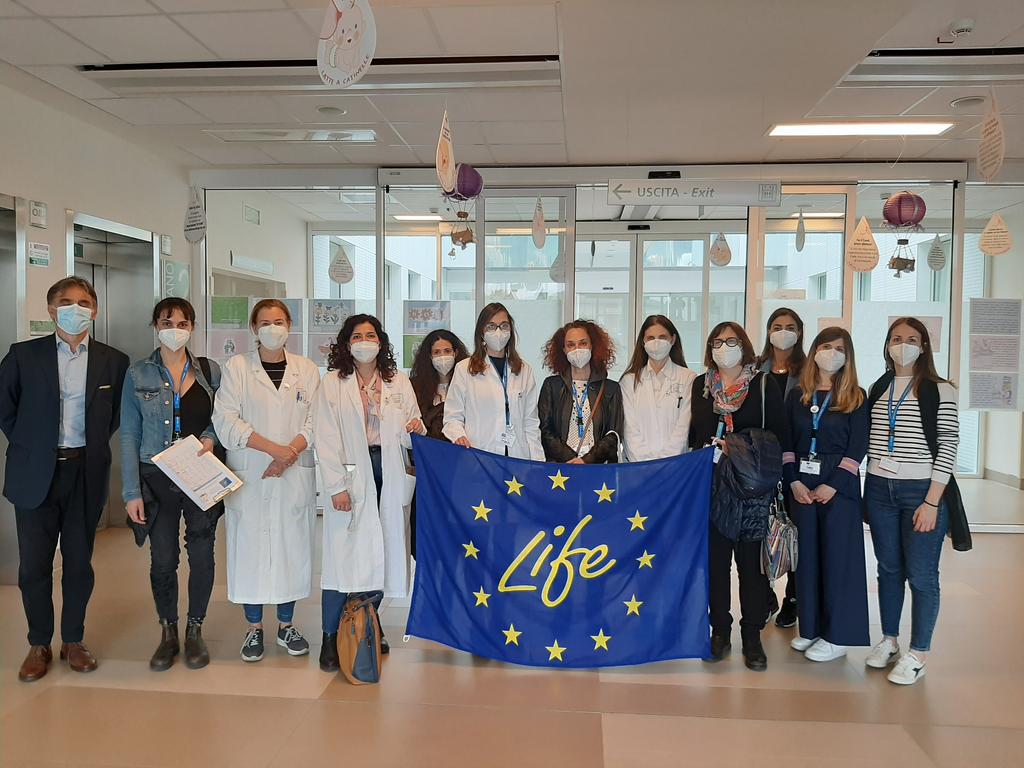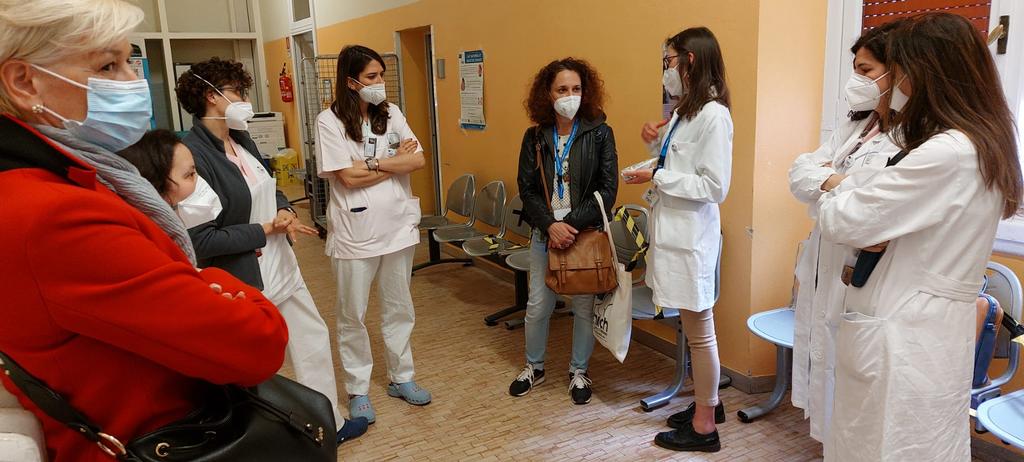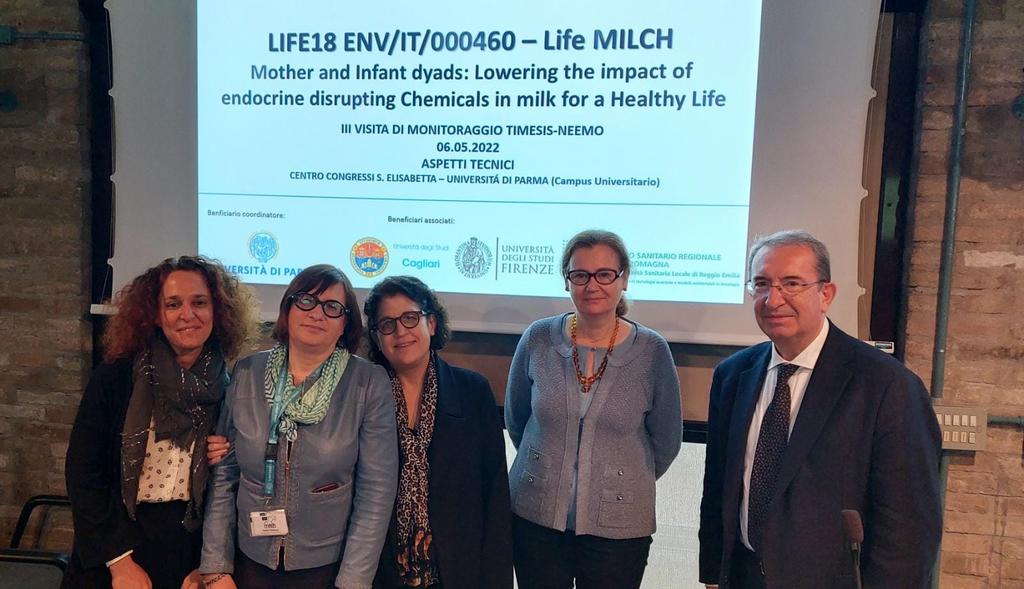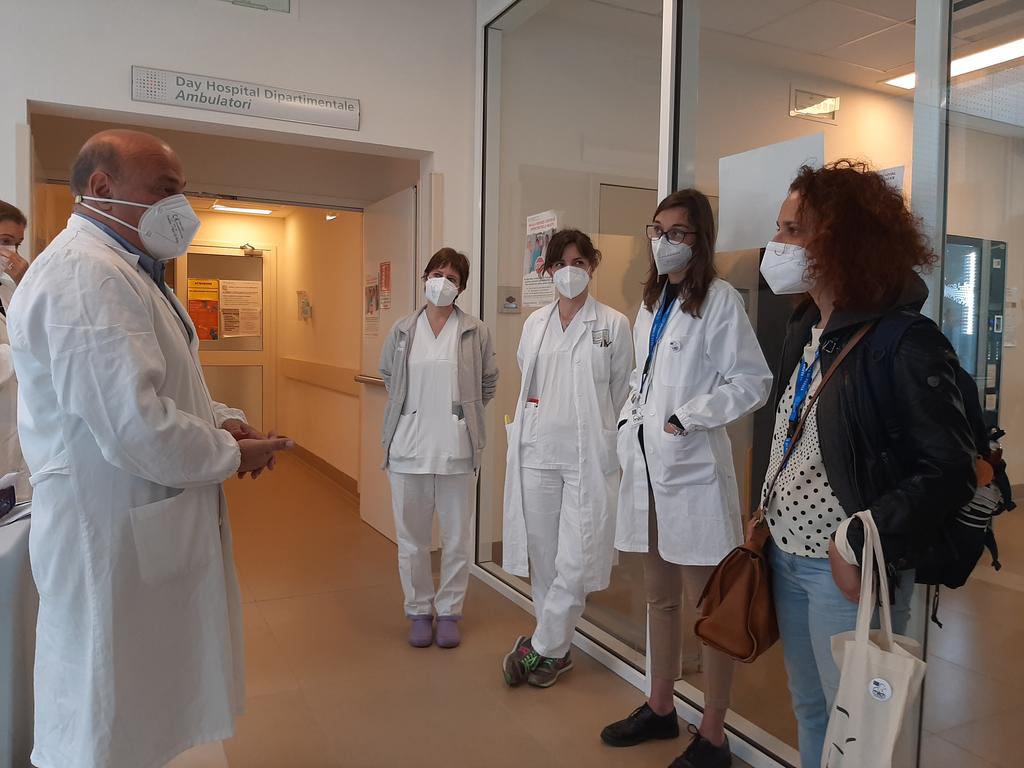Loading...
Monitoring Visit
06-05-2022/
Posted by
Giulia Berni/


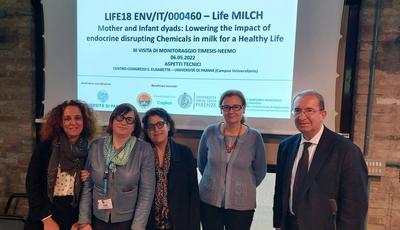
The Life-MILCH project’s partners convened in Parma for the annual monitoring visit: Ausl-IRCCS Reggio-Emilia, accounted for by Professor Maria E. Street; PeptLab, Univeristy of Florence, with Professor Anna Maria Papini; Professor Vassilios Fanos, referent for the University of Cagliari and Professor Paola Palanza, project coordinator (University of Parma). During this first stage, the Life-MILCH Project aims at evaluating the exposure of mother-infant dyads to environmental Endocrine Disrupting Chemicals (EDC).
The first day of the meeting consisted in visiting the various locations in Parma where the main stages of the project are carried out. One of these venues is the Mother-Infant Department of the Parma Azienda Ospedaliero-Universitaria, including the Children’s Hospital Pietro Barilla, where the monitoring expert had the possibility to visit the hospital areas and meet the clinical staff, composed by obstetricians, neonatologists, psychologists, pediatricians and infant neuro-psychiatrists.
During the following day the meeting moved to the conference hall Sant ’Elisabetta, at the University of Parma. Here, coordinators and dedicated staff from each institution involved (Parma, Reggio-Emilia, Cagliari, Florence), reported on the project’s achievements and activities, that, despite the initial delay and few critical issues caused by the COVID-19 pandemic, are currently ongoing.
Professor Paola Palanza, project leader for the Life-MILCH project, highlights that “the strengths of this project lie in the team work and meticulous coordination in defining procedures and planning activities, which can be achieved only by regular meetings between working groups and researchers. In this way we will be able to accomplish the main purpose of the Life-MILCH project that is the development of effective interventions to reduce mother-infant exposure to EDCs, while building a cooperative network including all the stakeholders”.
At Parma, Reggio Emilia and Cagliari sites mothers’ recruitment, collection of biological samples and evaluations of physiological and neuro-development of infants are currently running. Concomitantly, the PeptLab Laboratory at the University of Florence is analyzing all the biological samples of mothers and infants involved, with the purpose to assess the levels of EDCs. Professor Papini (University of Florence) reports that “detectable levels of different endocrine disruptors have been found in the biological samples so far analyzed: bisphenol-A and-S (BPA, BPS), traces of parabens, polycyclic aromatic hydrocarbons, a few residues of pesticides (in particular, glyphosate)”. Further analyses are conducted on formula milk and on its containers. Based on these investigations, in a second stage of the project, communication with producers and sellers of formula milk will be implemented. The final goal is creating a specific certification for products free from endocrine disruptors (EDC-free LABEL).
